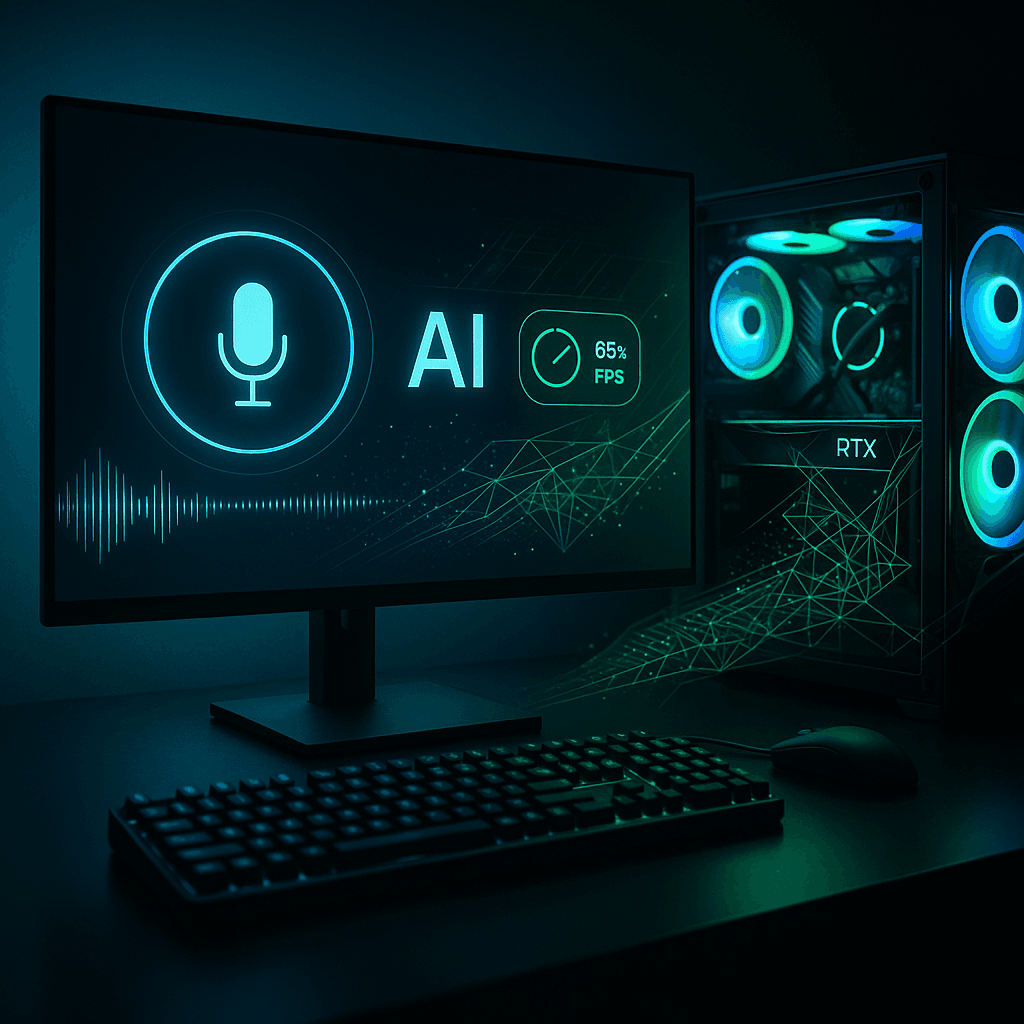NVIDIA just democratized AI-powered PC optimization. The company's Project G-Assist update slashes VRAM requirements by 40% while expanding support to all RTX GPUs with 6GB or more memory, bringing voice-controlled system tuning to millions more gaming rigs and laptops ahead of the holiday season.
NVIDIA is turning every RTX GPU into an AI command center. At Gamescom, the company unveiled a dramatically more efficient version of Project G-Assist that cuts memory usage by 40% while maintaining full accuracy, expanding the experimental AI assistant's reach from high-end RTX 4090 setups to mainstream 6GB cards including laptops.
The timing couldn't be better. As PC complexity has exploded with overlapping control panels, driver utilities, and peripheral software, NVIDIA's G-Assist acts as a unified voice interface that can "run diagnostics to optimize game performance, display frame rates and GPU temperatures, or adjust keyboard lighting" according to the company's announcement. Users simply press Alt+G and speak naturally to their system.
The breakthrough comes from a completely rebuilt AI model that processes requests faster while using significantly less VRAM. This efficiency gain means G-Assist can now run locally on RTX 3060 cards and RTX 4050 laptops - hardware owned by millions of gamers who were previously locked out. "The more efficient model means that G-Assist can now run on all RTX GPUs with 6GB or more VRAM, including laptops," NVIDIA confirmed in their technical breakdown.
NVIDIA is also launching the G-Assist Plug-In Hub through a partnership with mod.io, creating an ecosystem for community-developed extensions. Early plug-ins from the recent hackathon include Omniplay for researching game lore, Launchpad for managing app groups, and Flux NIM for generating AI images directly within G-Assist. The mod.io integration lets users discover and install new capabilities using natural language commands.
The update arrives as NVIDIA pushes deeper into on-device AI computing. Unlike cloud-based assistants that require internet connectivity, G-Assist processes everything locally on RTX hardware, ensuring privacy while eliminating latency. This approach positions NVIDIA to compete directly with Microsoft's Copilot+ PCs and on-device AI initiatives.












